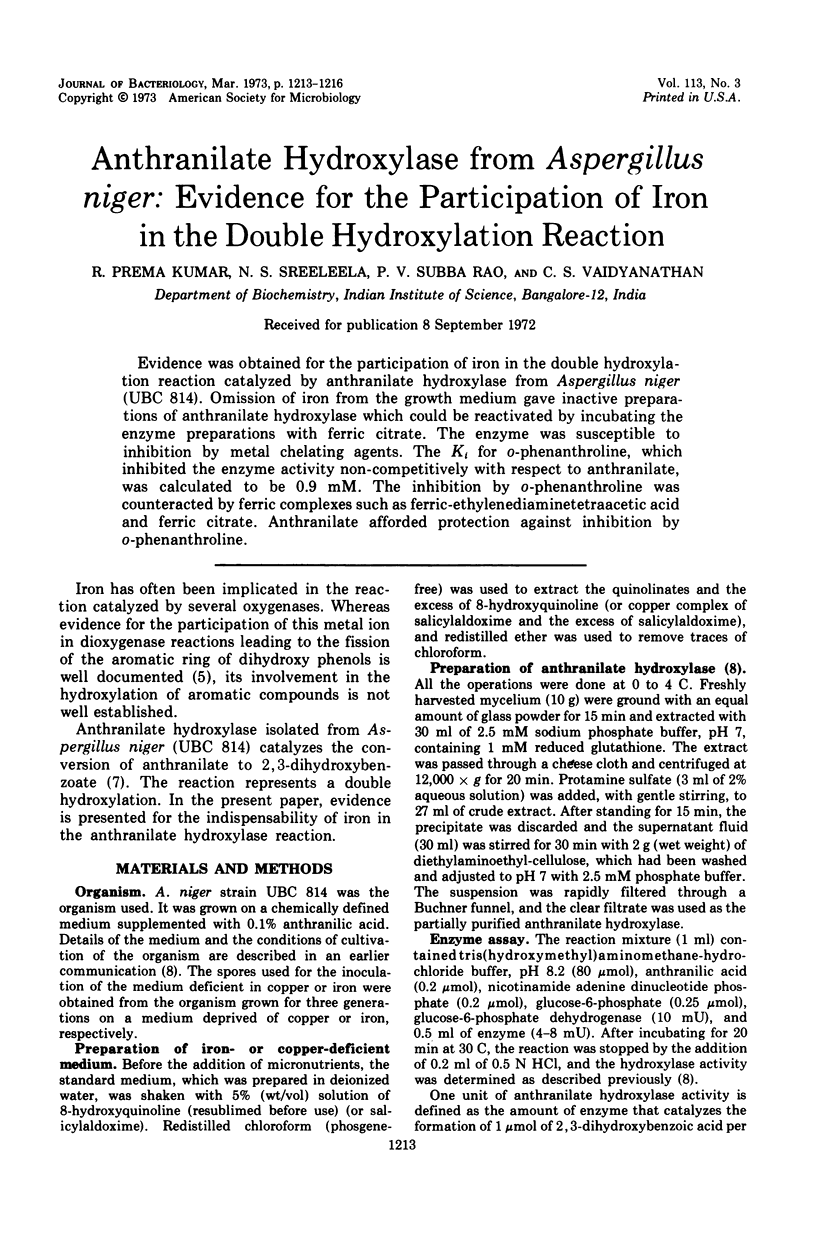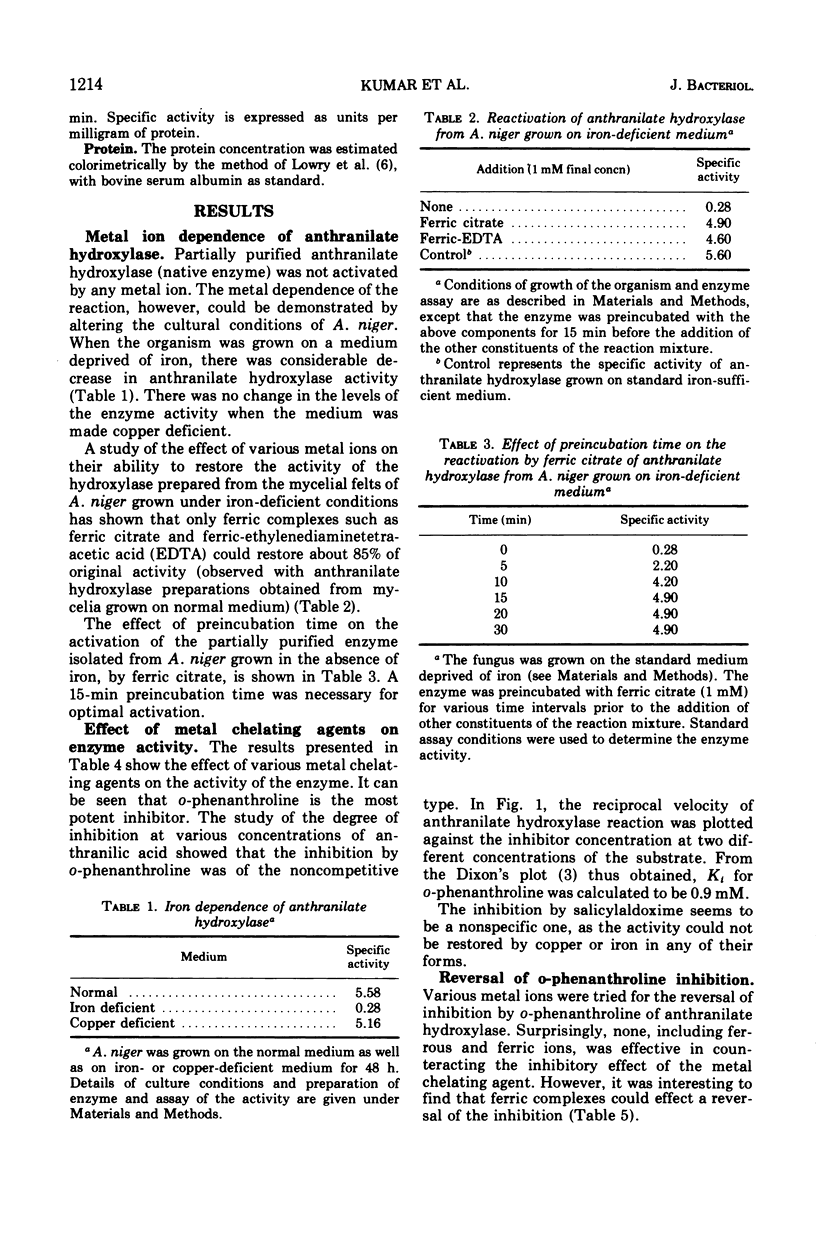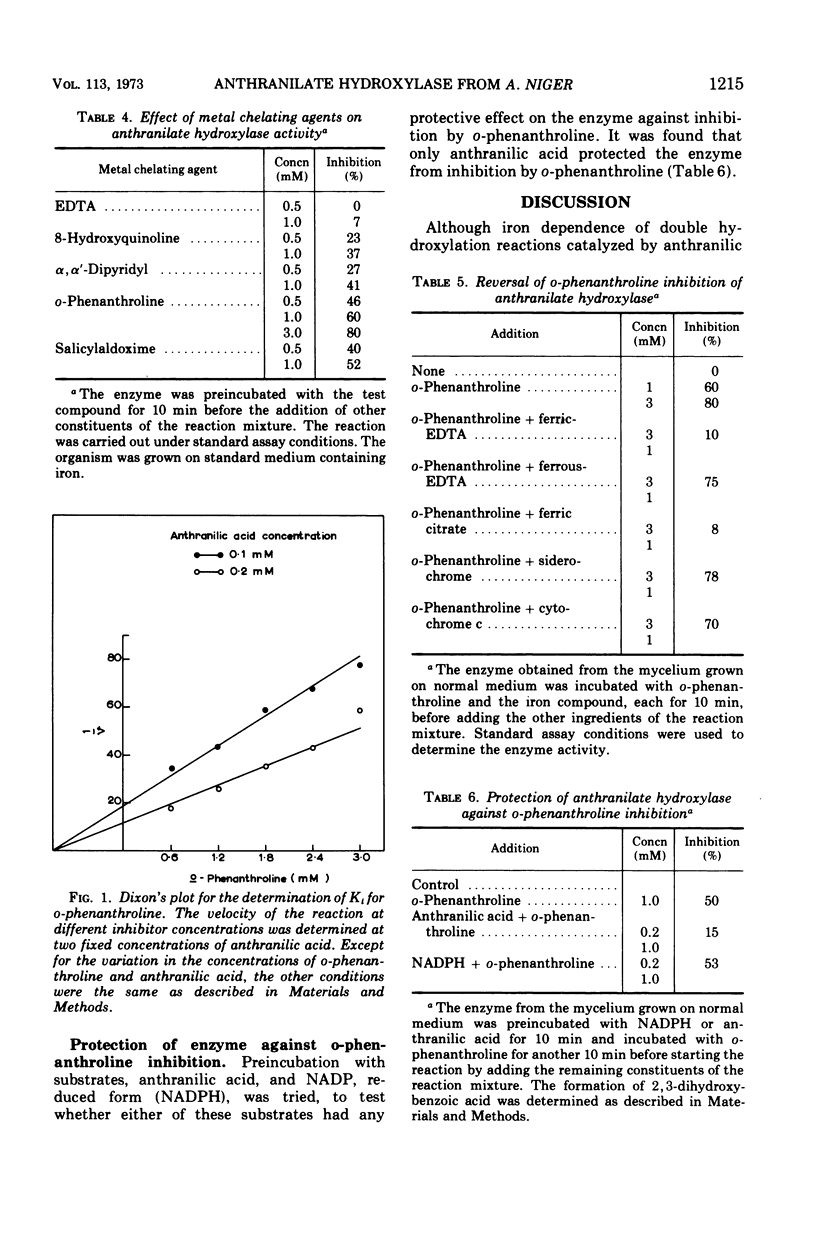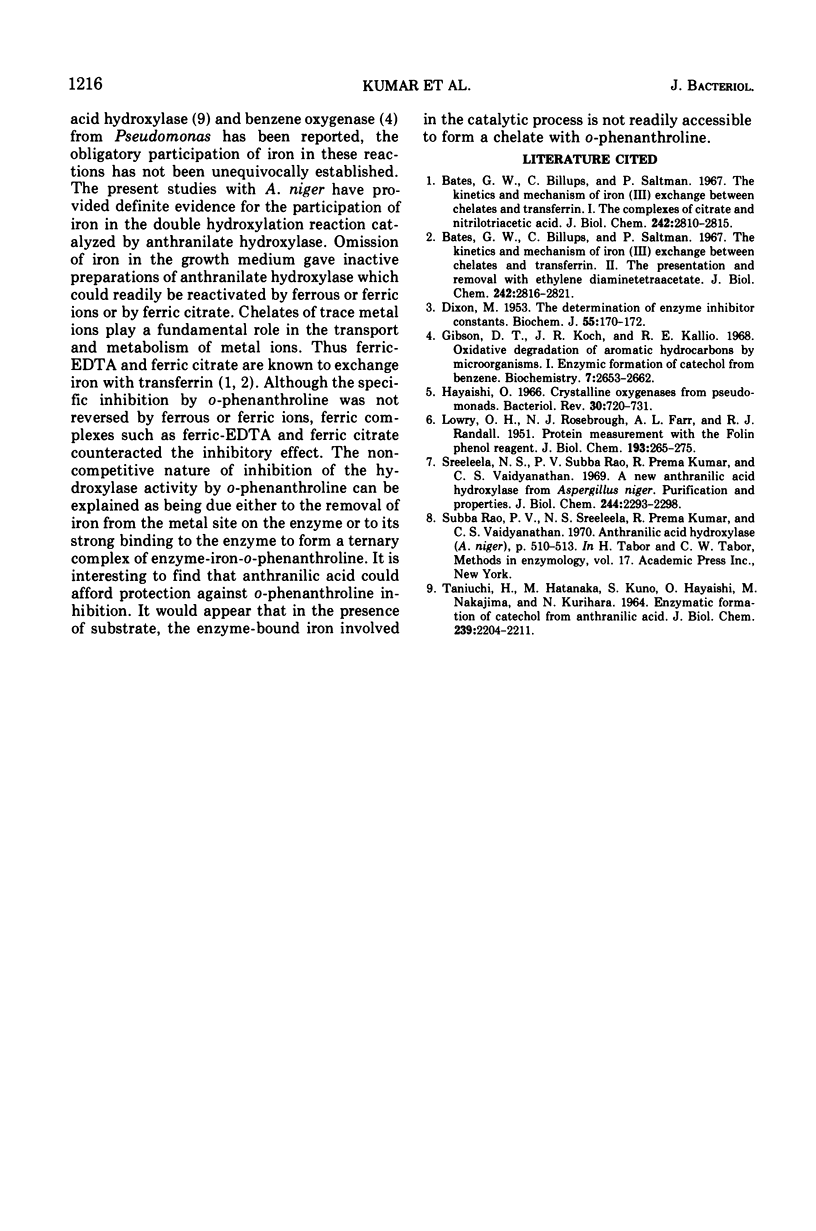Abstract
Evidence was obtained for the participation of iron in the double hydroxylation reaction catalyzed by anthranilate hydroxylase from Aspergillus niger (UBC 814). Omission of iron from the growth medium gave inactive preparations of anthranilate hydroxylase which could be reactivated by incubating the enzyme preparations with ferric citrate. The enzyme was susceptible to inhibition by metal chelating agents. The Ki for o-phenanthroline, which inhibited the enzyme activity non-competitively with respect to anthranilate, was calculated to be 0.9 mM. The inhibition by o-phenanthroline was counteracted by ferric complexes such as ferric-ethylenediaminetetraacetic acid and ferric citrate. Anthranilate afforded protection against inhibition by o-phenanthroline.
Full text
PDF



Selected References
These references are in PubMed. This may not be the complete list of references from this article.
- Bates G. W., Billups C., Saltman P. The kinetics and mechanism of iron (3) exchange between chelates and transferrin. I. The complexes of citrate and nitrilotriacetic acid. J Biol Chem. 1967 Jun 25;242(12):2810–2815. [PubMed] [Google Scholar]
- Bates G. W., Billups C., Saltman P. The kinetics and mechanism of iron (3) exchange between chelates and transferrin. II. The presentation and removal with ethylenediaminetetraacetate. J Biol Chem. 1967 Jun 25;242(12):2816–2821. [PubMed] [Google Scholar]
- DIXON M. The determination of enzyme inhibitor constants. Biochem J. 1953 Aug;55(1):170–171. doi: 10.1042/bj0550170. [DOI] [PMC free article] [PubMed] [Google Scholar]
- Gibson D. T., Koch J. R., Kallio R. E. Oxidative degradation of aromatic hydrocarbons by microorganisms. I. Enzymatic formation of catechol from benzene. Biochemistry. 1968 Jul;7(7):2653–2662. doi: 10.1021/bi00847a031. [DOI] [PubMed] [Google Scholar]
- Hayaishi O. Crystalline oxygenases of pseudomonads. Bacteriol Rev. 1966 Dec;30(4):720–731. doi: 10.1128/br.30.4.720-731.1966. [DOI] [PMC free article] [PubMed] [Google Scholar]
- LOWRY O. H., ROSEBROUGH N. J., FARR A. L., RANDALL R. J. Protein measurement with the Folin phenol reagent. J Biol Chem. 1951 Nov;193(1):265–275. [PubMed] [Google Scholar]
- Sreeleela N. S., SubbaRao P. V., Premkumar R., Vaidyanathan C. S. A new anthranilic acid hydroxylase from Aspergillus niger. Purification and properties. J Biol Chem. 1969 May 10;244(9):2293–2298. [PubMed] [Google Scholar]
- TANIUCHI H., HATANAKA M., KUNO S., HAYAISHI O., NAKAJIMA M., KURIHARA N. ENZYMATIC FORMATION OF CATECHOL FROM ANTHRANILIC ACID. J Biol Chem. 1964 Jul;239:2204–2211. [PubMed] [Google Scholar]


